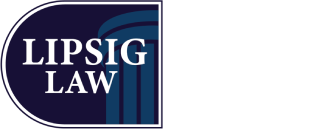The Harder They Fall: Can I Sue A Big Company?
It’s a classic case of slip and fall. A young boy runs through a crowded store, slides in a slippery substance, and lands on his head. The injury results in concussion, and the boy’s mother argues that the store should be held liable for her son’s injuries. Only this time, the defendant is Walmart, one of the world’s most valuable companies.
How To Sue A Huge Corporation
Apparently, Stephanie Smith’s claim had merit. The Texas mother just settled with Walmart for an undisclosed amount. In a world increasingly run by massive corporations, Smith’s success is certainly surprisingly. Especially when you consider Walmart’s notoriously vicious approach to plaintiffs.
Walmart, unlike many other retailers, has faced severe legal scrutiny for years. For perspective, the company faces approximately 5,000 new lawsuits each year, many of which are filed by its own employees. The highest proportion, though, come after slip and fall accidents.
But is that the right way to pursue a huge company, in an individual suit?
Collective vs. Individual Action
As we’ve discussed elsewhere, class action suits are the dominant form of litigation employed in taking on defendants with deep pockets.
But slip and fall suits are often too particular, too specific, to lump together. These accidents involve the conditions in one physical location and the actions of individual store owners, managers and employees. A defectively-designed product can be shipped all over the world, affecting many individual consumers in much the same way. It makes sense to combine these numerous injuries into one legal action, because everyone was hurt in similar ways.
Slip and fall accidents are necessarily unique. Which means most, whether they involve a multinational conglomerate or the bodega on the corner, will come down to individual personal injury lawsuits. One plaintiff and one defendant, no matter how rich that defendant happens to be.
Are More People Suing Corporations?
Recent cases seem to bear this out.
Barbara Guillory, another resident of Texas, recently filed suit against Taco Bell, a company with annual revenues of almost $2 billion. And while the company has denied all responsibility for Guillory’s fall, her claim will proceed to court.
In West Virginia, a man is pursuing Target (worth around $38.4 billion) after he slipped and fell on a wet floor. Like Taco Bell, Target denies all fault and is vehemently fighting the case.
And then there’s Tracy Morgan. The comedian, of 30 Rock and Saturday Night Live fame, is suing Walmart after his limo was rear-ended by one of the company’s delivery trucks. Morgan suffered numerous broken bones. His best friend was killed.
There are no statistics that could give us an accurate picture of how many plaintiffs sue large corporations. They seem prevalent, but are they? It’s more likely that these lawsuits are simply more visible; they get media attention because the defendants are so prominent, not because they’re common.
Looking at class actions, on the other hand, it becomes clear that most collective lawsuits involving large companies, like Walmart, are filed by employees, generally on grounds of discrimination within the workplace or unfair labor standards.
If you think you have a case, all signs point to a traditional personal injury lawsuit. But is that enough?
How Do I Know If I Should Sue?
Generally speaking, there are four reasons you might have a case against a big company:
- The company made a mistake, and knew about it.
- A company was negligent, and you were injured as a result.
- You were deceived by a company; they actively misled you through their marketing.
- You had a contract, and the company broke it.
Slip and fall claims would fall into that second category, and note that “company” can be interpreted broadly in this case. Under American law, companies can usually be held liable for the actions of their employees, managers, and even some contractors.
To learn more about building a successful slip and fall case, click here.
I Think I Have A Case. What’s Next?
The real lesson here is that no defendant, no matter how large, is absolved of responsibility out-of-hand. Remember Stella Liebeck, the 80 year old woman who sued McDonald’s for third-degree burns after she spilled scalding coffee on herself? Most legal professionals consider this the very definition of a frivolous lawsuit, a claim without merit. The jury, on the other hand, awarded Liebeck $2.7 million.
Every potential lawsuit must be considered on its own merits. Slip and fall accidents often involve a myriad of factors: environmental conditions, under-staffing, personal choices, inadequate maintenance, floor surfaces, and so on. They have to be investigated thoroughly, preferably by an experienced attorney.
Contact New York City’s Slip & Fall Attorneys
If your case is valid, if negligence led to your injury, you deserve compensation. This is true no matter the defendant.
Contact the personal injury lawyers at Lipsig, Shapey, Moverman, Freund & Wisell, PLLC today for a free consultation. Tell us about your accident and we’ll guide you to the best course of action. No obligation, no fee; just trusted advice and proven results.


